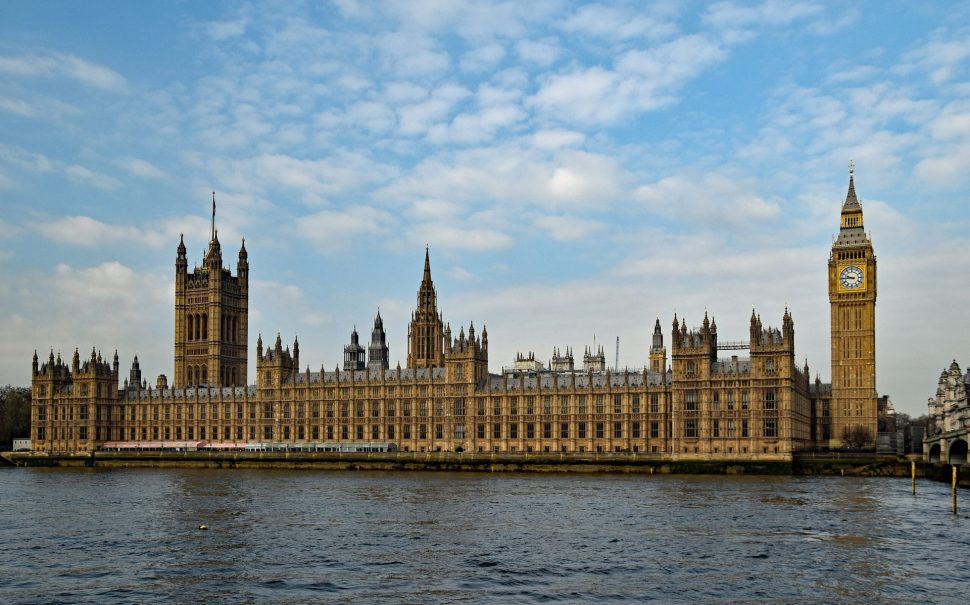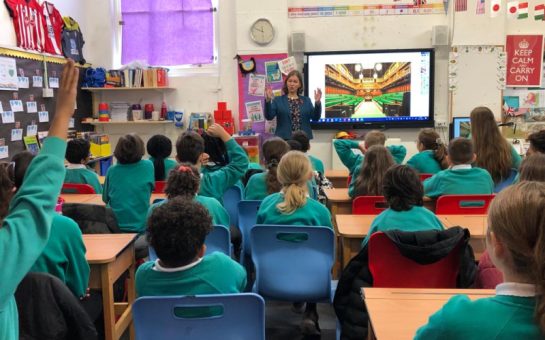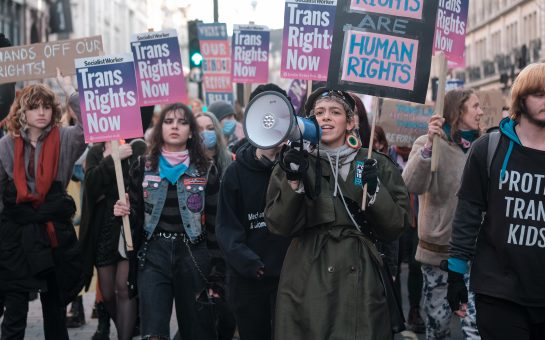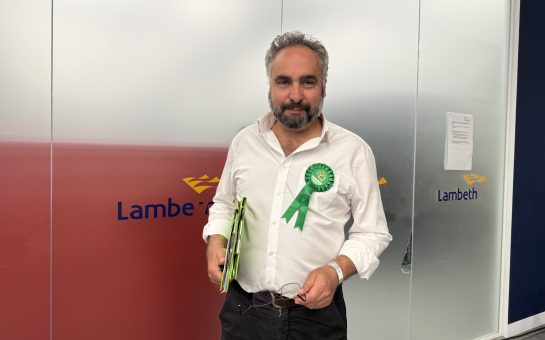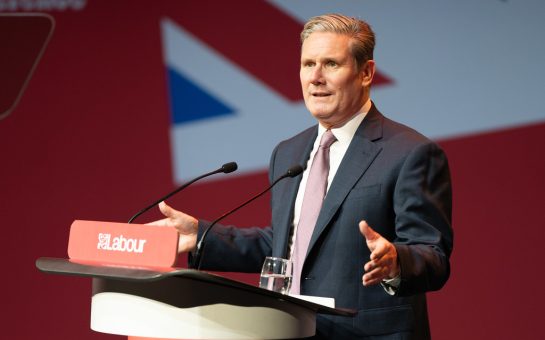Half of Londoners believe Labour will win the forthcoming general election outright, according to a poll released by YouGov.
The survey, conducted monthly, showed that 50% of Londoners believe Labour will win a majority of seats compared to just 11% who believe that the Conservatives will do so.
This is in stark contrast to Prime Minister Rishi Sunak’s claim that the UK is heading towards a hung parliament following last week’s local elections which saw the Conservatives lose 10 councils and nearly 500 council seats.
Political journalist and author Ian Dunt disagreed on Twitter: “You have to be very imaginative to make the case for a hung parliament.
“For what it is worth, I would love a hung parliament, it’s just that existing data points heavily towards a Labour Landslide.”
The Prime Minister seized upon research conducted by polling experts Colin Rallings and Michael Thrasher, which suggests that if local election results were replicated nationwide, Labour would fail to win the required amount of parliamentary seats required to hold a majority in the House of Commons.
According to the poll, only 11% of Londoners concurred with Sunak’s belief that a Labour led hung parliament is the likely outcome of a general election.
A hung parliament is the term given when no party wins a majority of seats at a general election and usually leads to a party having to enter into a coalition with a smaller party to reach the required threshold.
Sunak’s claim that patterns in local elections can provide a glimpse into outcomes at a general election are understandable in theory but in reality, are delusional at best and desperate at worst.
Firstly, the local elections are held in England and Wales and thus do not include voters in Scotland where Labour are expected to win back many of the seats lost in 2019, due in part to chaos within the Scottish National Party.
Secondly, turnout for local elections is historically much lower than for national elections meaning many who did not vote last week will turn out at the general election.
Also, there is the added complexity of the growth of the Reform Party, who did not have a candidate in many council wards, but are expected to steal a significant number of votes from the Conservatives in a number of swing seats, handing an advantage to Labour.
The YouGov poll showing the expectations of voters across the country demonstrates the lack of belief amongst the electorate the the government will live beyond the year to enact much of the legislation recently passed by parliament.
Amanda, a 23 year old freelancer from north London said: “I think that everyone is fed up with the government.
“I think that people remember things such as the handling of covid and party-gate and we’re seeing the implications of Brexit so people who voted tory before might not this time.”
Moreover, the poll is the culmination of consistent decline since June 2021 where more than half of those surveyed believed that the government would maintain their majority in some form.
June 2021 was the month which saw Matt Hancock, the then Health Secretary, step down following the revelation that he was having an affair with a aide, in breach of lockdown guidance imposed following the Covid-19 pandemic.
Whilst the polling is conducted without explanation, the number of people who believed that the government would win at the next election fell sharply in the months that followed, reducing to 33% by September 2021.
Polling since has seen a consistent downturn in expectations of those polled throughout the party-gate saga and resignation of Boris Johnson culminating in only 12% expecting a Conservative majority in October 2022, the first poll conducted following Liz Truss’ ill-fated spell as Prime Minister.
The release of the poll coincides with another poll conducted by YouGov which puts the Labour Party 30 points ahead of the Conservatives when voters are asked who they intend to vote for.
The poll, released on Thursday, estimates that the Labour Party could win as much as 48% of the national vote.
To put this in context, this figure is 2% more than was achieved by New Labour in 1997 as they won an unprecedented landslide that gave them 419 parliamentary seats and a majority of 179.

While figures of 50% suggest that a significant number of Londoners view the Labour Party as a government in waiting, it would be naïve to assume that this is solely an endorsement of Labour’s manifesto and not an indictment of the performance of the incumbent government.
Labour consistently trailed the Conservatives for the first three years of the parliamentary term, failing to poll higher at the height of the party-gate saga and amidst public criticism of the poor handling of multi-million pound PPE contracts during the pandemic.
Naturally, it stands to reason that the government would retain popularity in the months following a general election which saw them win a majority, but it will be of some concern to those in the Labour Party that it took the generational disaster of Liz Truss’ premiership to turn the party into one viewed by voters as being capable of winning an election outright.
Whilst Truss’ short spell in number 10 gave Labour a much needed boost in the way they are viewed by the electorate, the fact that they have not maintained that lead consistently since highlights the changing nature of public opinion and the need to guard against complacency.
June 2023 for example, saw Labour polling drop to 20% with the Conservatives rising to 30%, despite the previous month seeing the government deal with humbling local election defeats, questions over the then Home Secretary’s handling of a speeding ticket and former Prime Minister Boris Johnson being referred to police over fresh allegations surrounding his lockdown rule breaches.
Fiona, a 60 year old business development director from South London echoed this sentiment.
She said: “I don’t think it is all over yet.
“I am not convinced Keir Starmer is the answer and once they start campaigning, I think people’s views can be changed.”
This opinion is supported by the polling data, with one in five of those asked stating that they do not know what the election outcome will be.
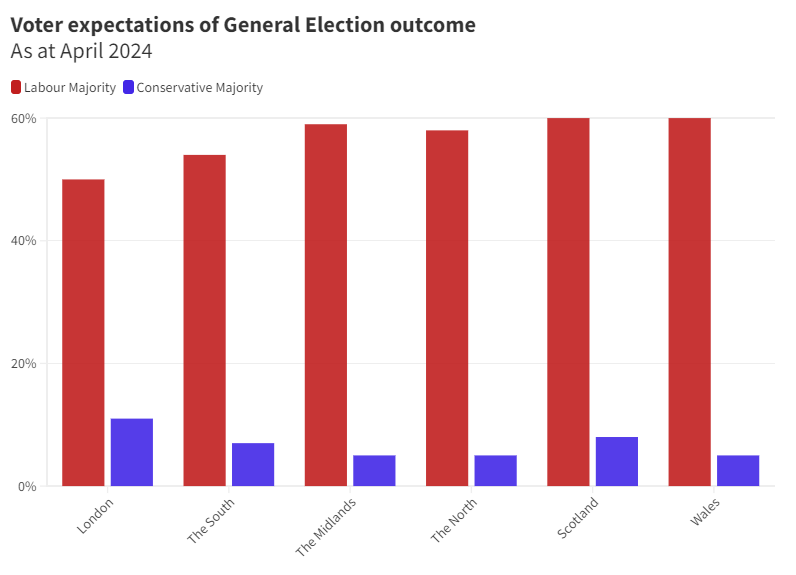
Yet the combination of polls of expectations and voter intentions suggest that Labour are edging closer and closer to ending 14 years of Conservative rule.
In a week which has seen mayors and MPs turn from blue to red, the data and the feeling nationwide seems to indicate that a Labour majority is the only sensible prediction to be made.
Credit Thomas Dahlstrøm Nielsen (licenced under Creative Commons Attribution-Share Alike 4.0)
